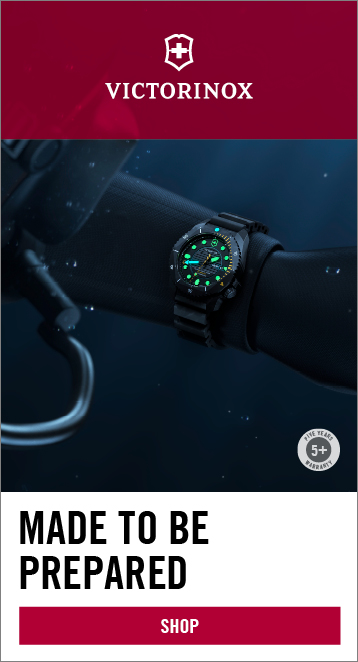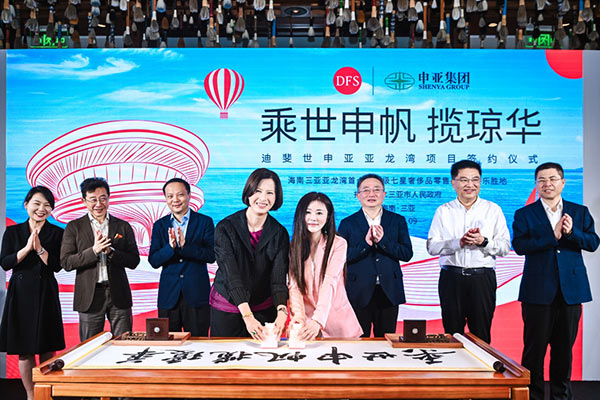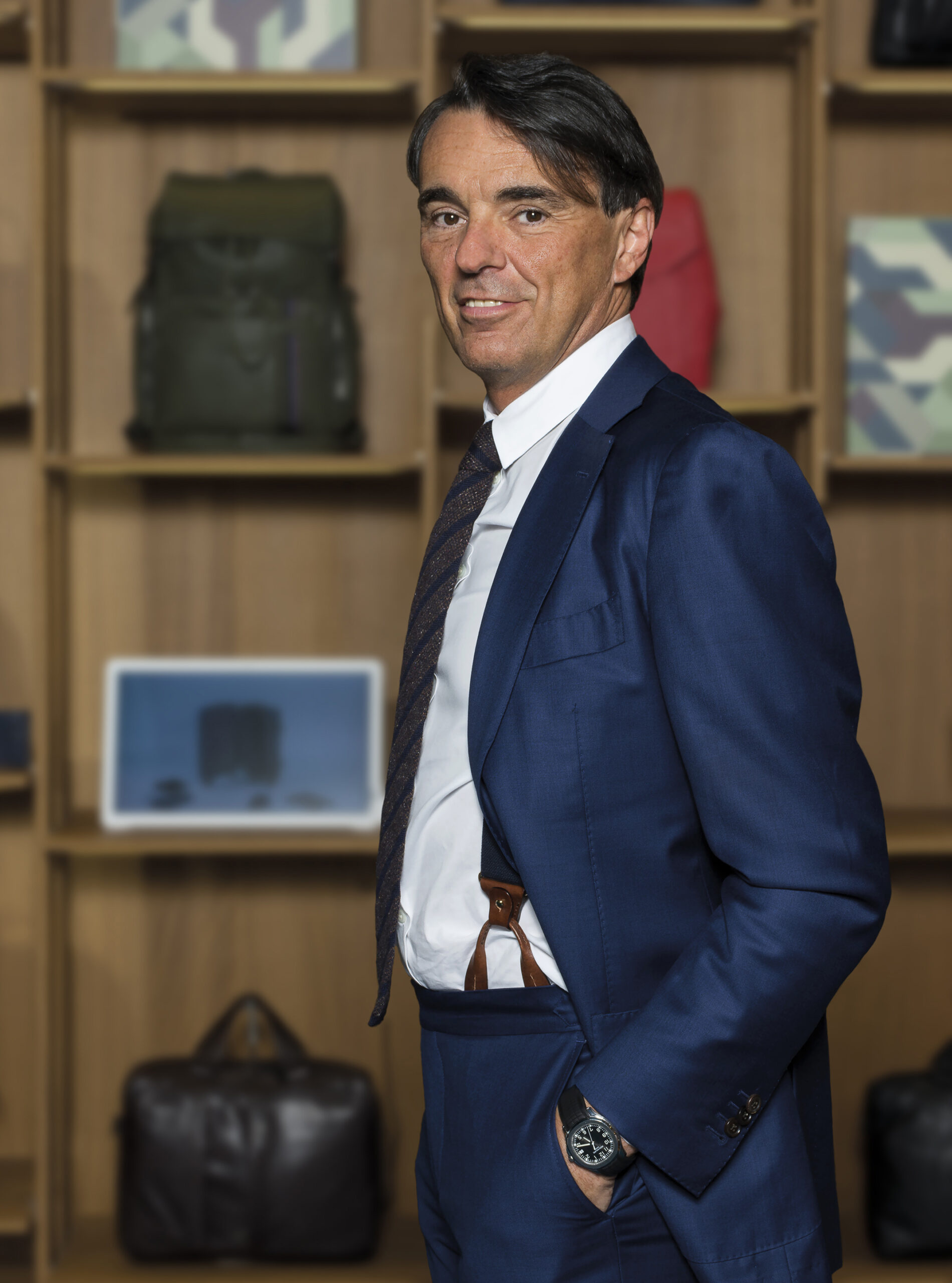
Style and creativity. Heritage and prestige. An intrinsic sense of Parisian style.
These are the things that attracted Piquadro Group to loss-making French leathergoods brand Lancel, which it acquired last March from luxury group Richemont.
At the time of the deal, Piquadro Group Founder & CEO Marco Palmieri described the brand as “a style icon of unrivalled excellence since 1876”. His enthusiasm remains strong as the company accelerates the recovery programme for its acquisition. “It’s a very good brand with a very good heritage,” he tells The Moodie Davitt Report.
Palmieri has a big job on his hands though – the company was EBITDA negative to the tune of €23 million in the 2018 financial year on sales of approximately €51 million.
Founded in Paris in 1876, Lancel began making leathergoods in the 1880s, soon becoming famous for its handbags. For over a century the brand has maintained a reputation for innovative design, great craftsmanship and exceptional materials.
For Piquadro, the appeal of Lancel’s history was irresistible. “I invite you to see the museum,” says Palmieri. “It is incredible. A lot of bags, many of them over 100 years old, from as far back as the 1890s.”
A strong heritage brings with it a strong signature style, and Palmieri says the Group was also attracted by a “Parisian taste for line and detail” that he finds evident in Lancel.
The reputation of the brand was strong too, he says, and the quality of both products and service excellent. It was all this that led the Group to make the purchase.
“I saw all the things that were possible,” he explains. “Lancel has great potential for growth.”
“The challenge is to bring back Maison Lancel’s allure through trendier and younger collections that must continue to keep their Parisienne mood… and achieve break-even in four years’ time.” – Piquadro
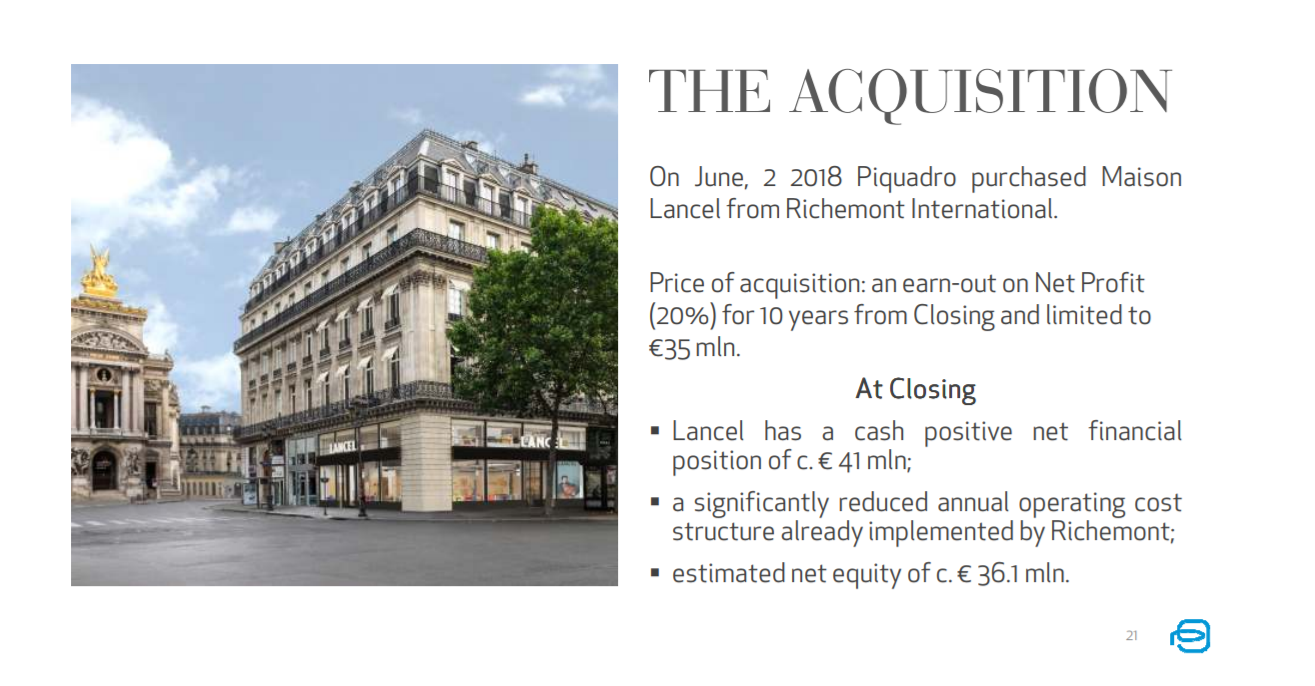
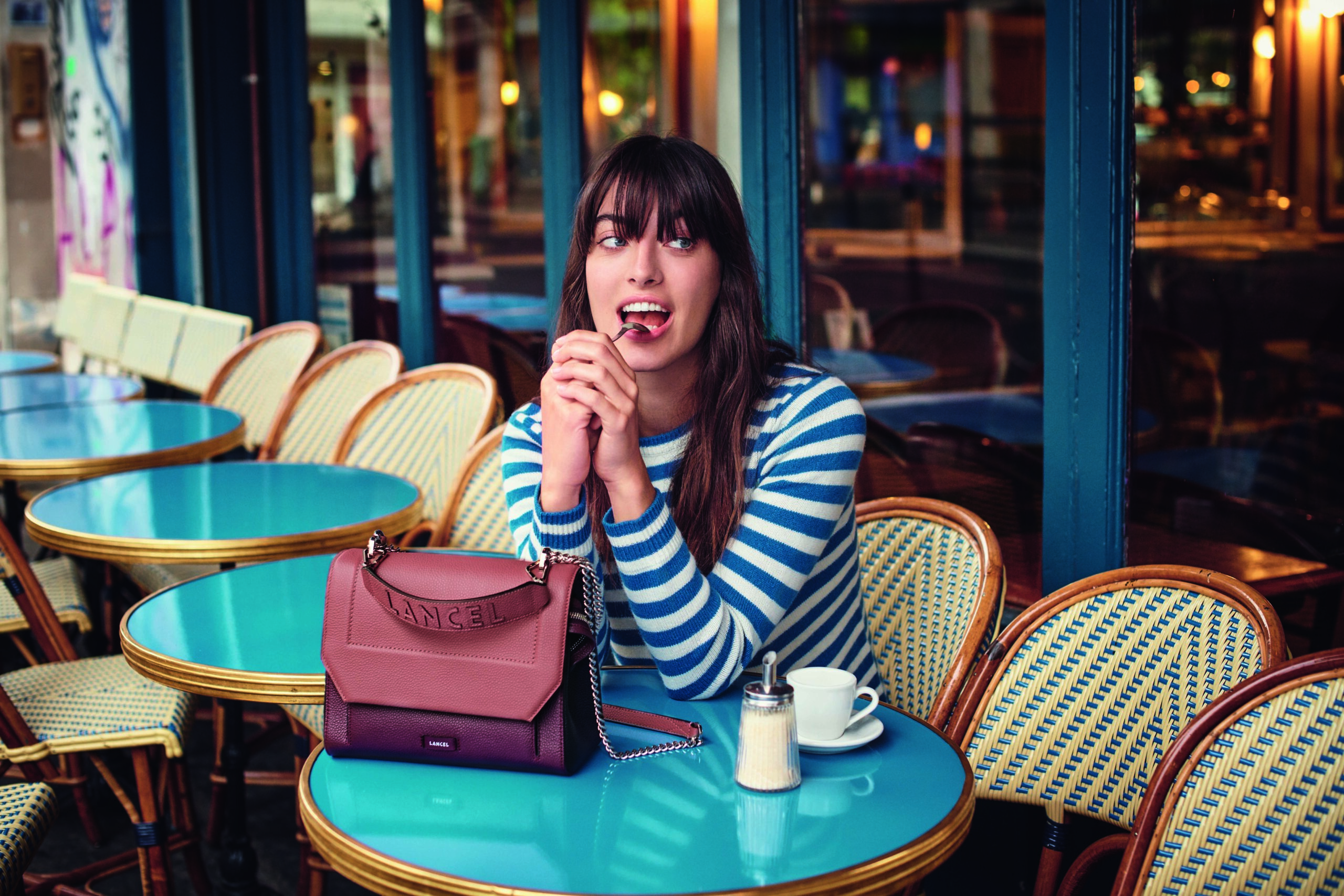

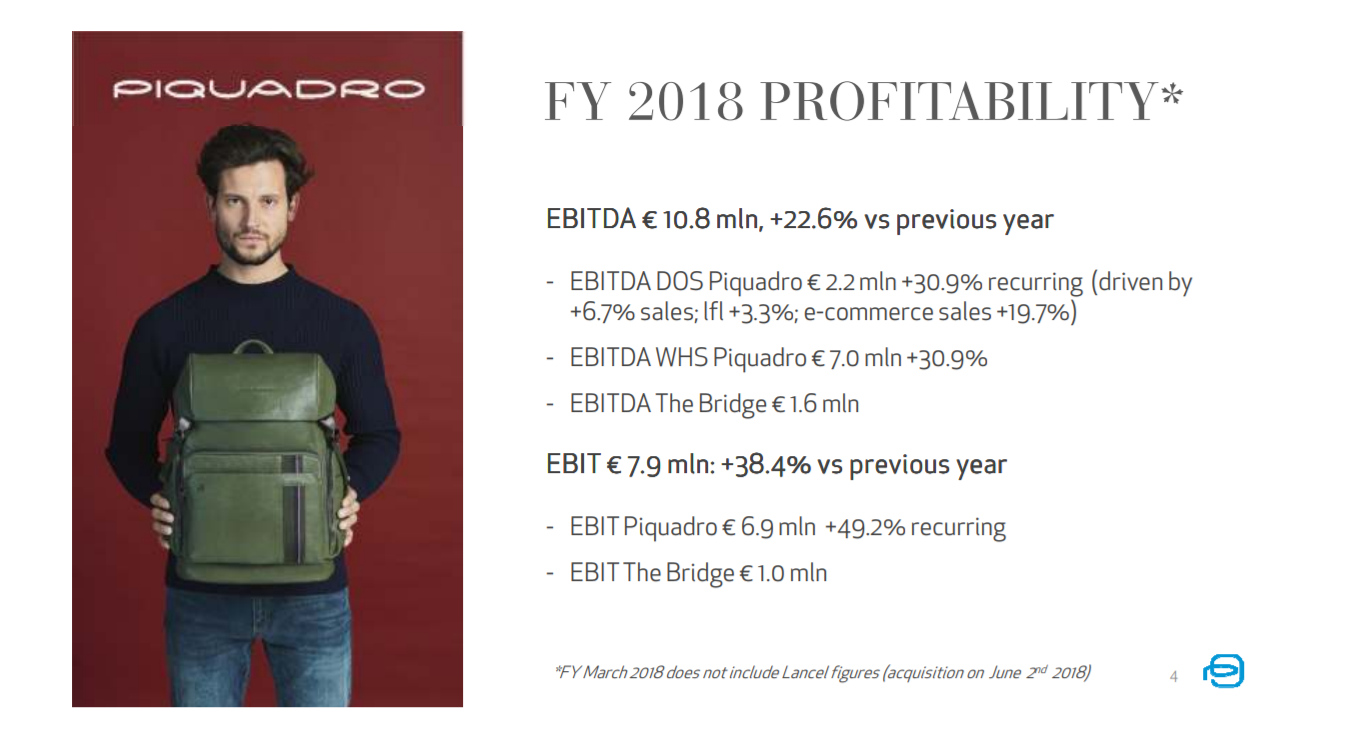
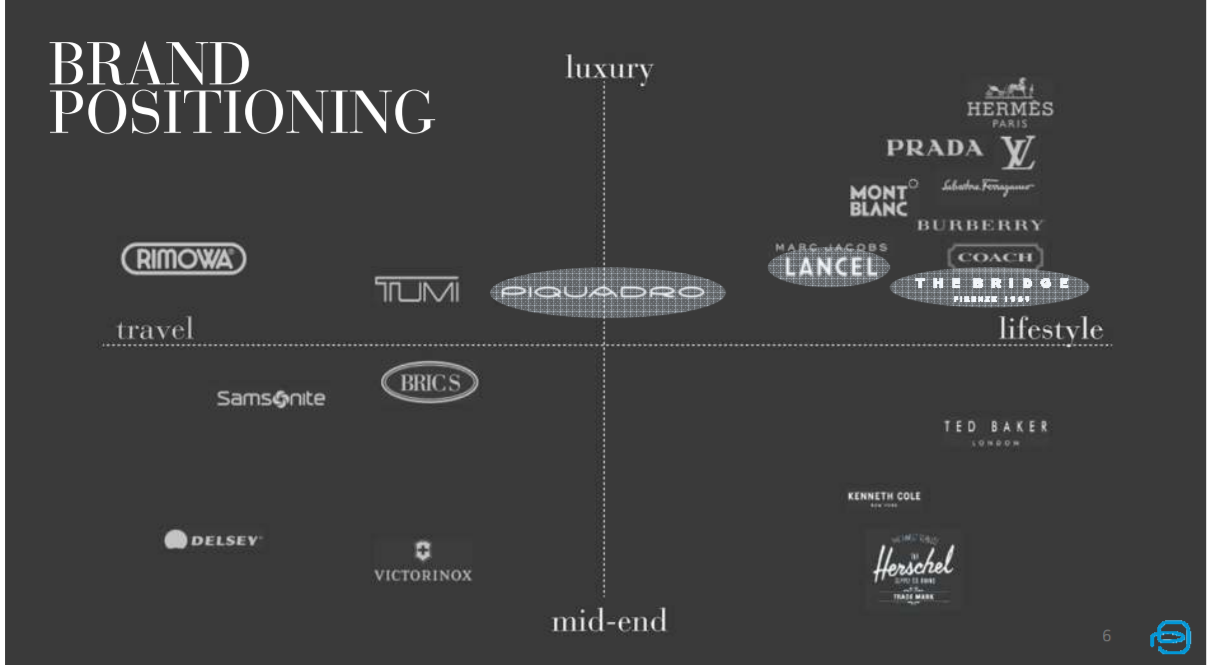 Relaunching Lancel
Relaunching Lancel
After the acquisition, the strategy was to reposition and not to overhaul. “We wanted to realise a more dynamic product offer with a more efficient collection schedule – twice a year,” says Palmieri. Seasonal, fashion-forward collections offer a “sexier, glossier” aesthetic than before.
There are many brands on the market, he concedes, but he believes Lancel brings something different. A creativity and a speed – of new collections, styles – that he says is not easy to find in the premium market.
“We have combined French style and history with Italian craftsmanship and skill.”
To appeal to the modern consumer, it was also important to “build a more digital company in terms of communication”. The new Lancel is targeting millennials with a strategy that includes sleek social media campaigns and influencer marketing, such as a campaign featuring French model and Instagram favourite Louise Follain.
 To maintain synergy across its brands, Piquadro Group relocated production. Lancel now boasts the Made in Italy label. This, says Palmieri, is increasingly rare in the premium market, with many luxury goods now made in Asia.
To maintain synergy across its brands, Piquadro Group relocated production. Lancel now boasts the Made in Italy label. This, says Palmieri, is increasingly rare in the premium market, with many luxury goods now made in Asia.
“We kept absolutely the French identity of the company,” notes Palmieri. “It is a French brand, it will remain a French company. And we kept the incredible quality and heritage, the values that come from the past. We have combined French style and history with Italian craftsmanship and skill.”
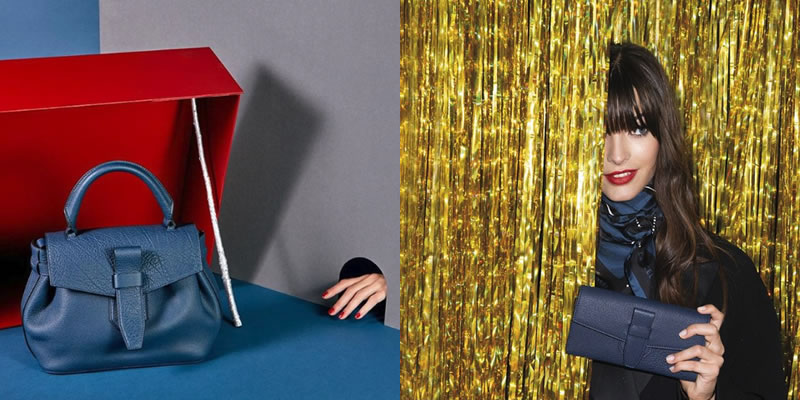
Return to travel retail
Lancel is not new to travel retail. The brand did see success in the channel but five years ago it withdrew, remaining only in a few doors. Piquadro quickly sought to change that.
“We have a demand from this market,” explains Palmieri. “[The previous management] decided to escape five years ago. But our view is very different. And people remember the brand well in the channel. We are getting a lot of requests.”
And what are these requests for? “In travel retail, of course, the priority is women’s bags and small leathergoods,” he says. “This is the category that is most suitable for the channel. And for which the brand is also most well known internationally.”
However, Lancel’s overall product offer is wider, with men’s collections, accessories, luggage, small bijoux and scarves too. Piquadro Group takes travel retail seriously, and no doubt its offer will widen as Lancel’s presence grows.
A strong past and a fantastic future
So what are the key products for travel retail?
“One product that I love from the current collection is the Ninon,” enthuses Palmieri. “I love it. I do.”
A leather handbag that blends soft and sharp lines, Ninon features both a cross-body chain strap and a thick leather handle sporting an oversized logo. It strikes a clever balance between the classic and the seasonal.

Ninon may be the exciting new signature design, but it hasn’t displaced existing styles.
“On the other hand, I love the 1er Flirt,” says Palmieri. A tasselled bucket bag in soft leather, the style has become something of a collector’s piece and is frequently found on specialist second-hand luxury websites. It will be reintroduced for spring/summer 2019.
“That’s a very old bag. It was born over 20 years ago,” explains Palmieri. “The future and the past. That is the strength of Lancel. A strong past and a fantastic future.”
The Piquadro portfolio Lancel is the second acquisition for the Group, whose flagship Piquadro brand is known for luxury leathergoods, in particular those for business and travel. The first step was the acquisition of The Bridge, a historic Florentine leathergoods brand that was felt to have a strong identity that fitted well with Piquadro. “We took the company and we repositioned it,” says Palmieri. “A couple of years ago we started a strategy to gather together a group of companies with a strong synergy,” explains Palmieri. Piquadro, he continues, is a highly integrated company. “We have a factory, a production plant, logistics, and we are listed on the stock market, so financially we are solid.” A strong base from which to expand. 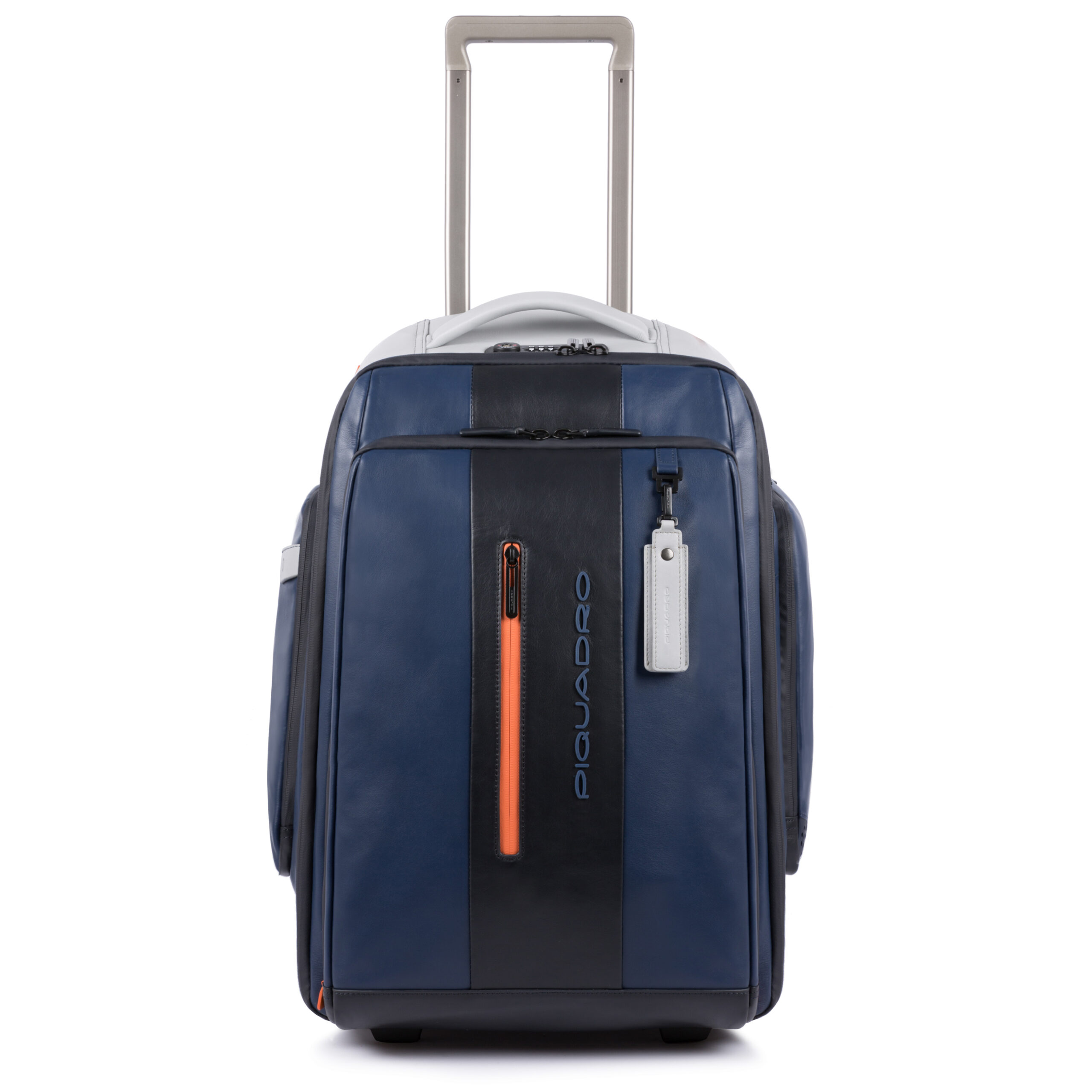 Repositioning rather than reinventing seems to be the Piquadro way. The Bridge, as Palmieri noted at the time, already had an excellent product portfolio. Its quality was not in question. The Group felt it simply needed a refresh – new colours, details, a more modern approach to communications. And thus far it seems that was true; the Group says increase in turnover has exceeded all expectations.
|




